Whats New
Does Reformulation and Product Innovation Result in a Healthier Food Supply?
There is increasing consumer awareness and interest in healthier products, which in turn may prompt the food industry to innovate and reformulate products to meet changing consumer needs. As new products are introduced, “it is critical to gauge how much progress has been made by offering more nutritious food choices and whether the changes to products’ nutritional content are in the public interest”, according to a 2017 U.S. Department of Agriculture Economic Research Service report, “An assessment of product turnover in the US Food Industry and Effects on Nutrient Content”.
The report compared differences in average nutritional content of products entering, exiting, and already established in the marketplace between 2008 and 2012. Data were derived from American market research company IRI’s InfoScan database. New products from five food and beverage categories were analyzed for their nutrient content: breakfast cereals, yogurt, snacks, candy, and frozen/refrigerated meals. These categories were chosen because they are active in product innovation as reflected in product turnover rates.
Interesting findings from this report include:
- Increased fiber content in breakfast cereals and yogurt, and decreased in frozen/refrigerated meals;
- Minimal change in sugars content in all categories;
- Increased saturated fat content in all categories except candy products (containing no saturated fat);
- No change in total Calories in breakfast cereals, frozen/refrigerated meals and snack products; a small decrease in candy products and a small increase in yogurt products;
- Decreased sodium content in breakfast cereals, yogurt, snack and candy product, and no change in frozen/refrigerated meals.
Observed changes in Calories, saturated fat, sodium, and total sugars are depicted in the figures below.
Based on these observed changes in nutrient content, the authors concluded that findings “support the contention that policies focusing on reducing a single nutrient (such as sodium) may not lead to overall healthier products because companies may compensate for deterioration in taste by increasing levels of unhealthy nutrients (such as fat)”.
With plausible continued efforts in product innovation and reformulation, a focus on overall nutrition quality rather than individual nutrients may provide greater opportunities in developing a healthier food supply.
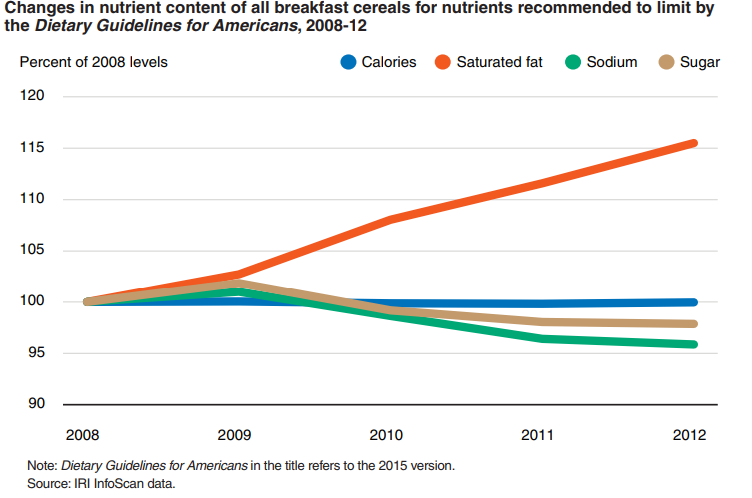
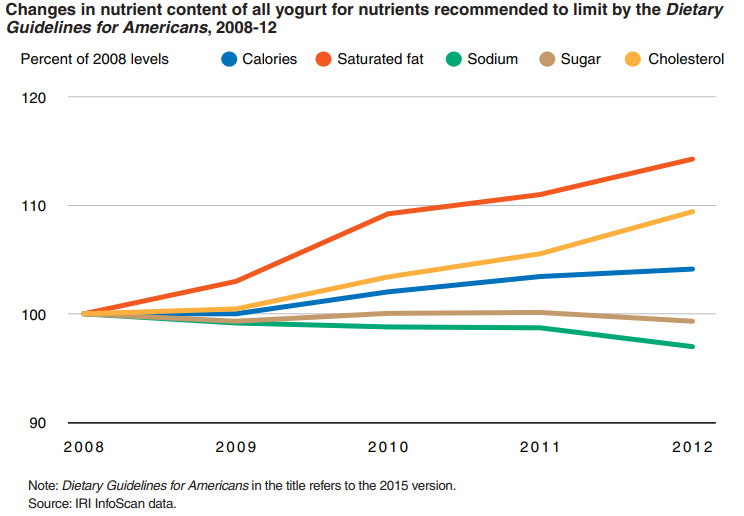
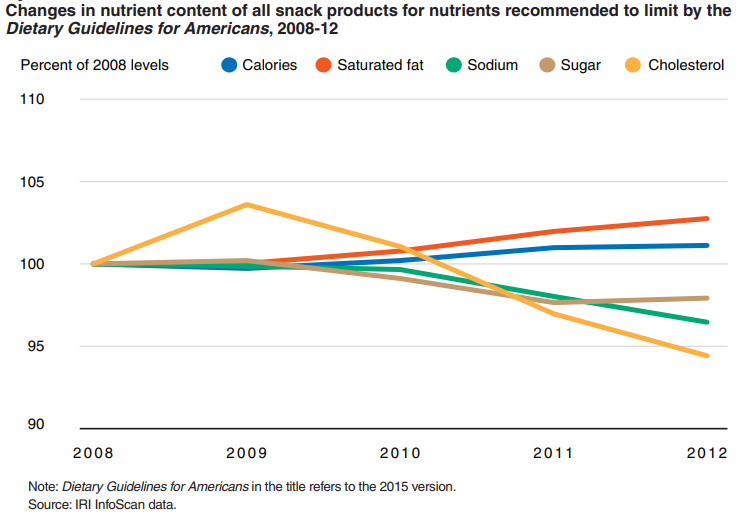
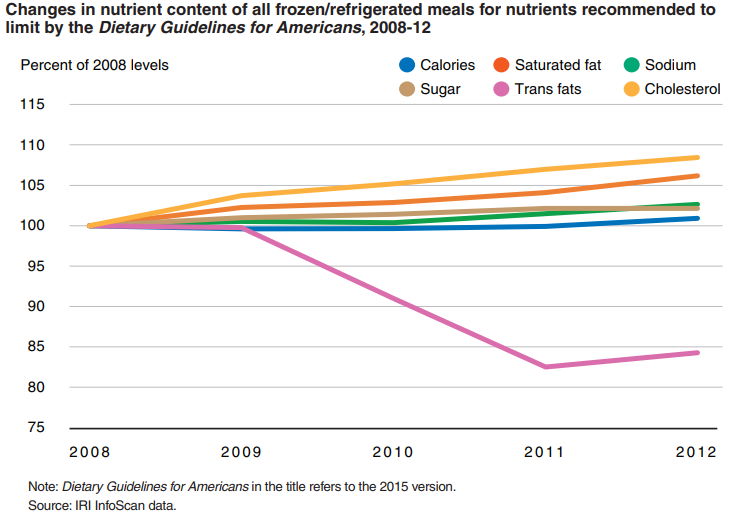
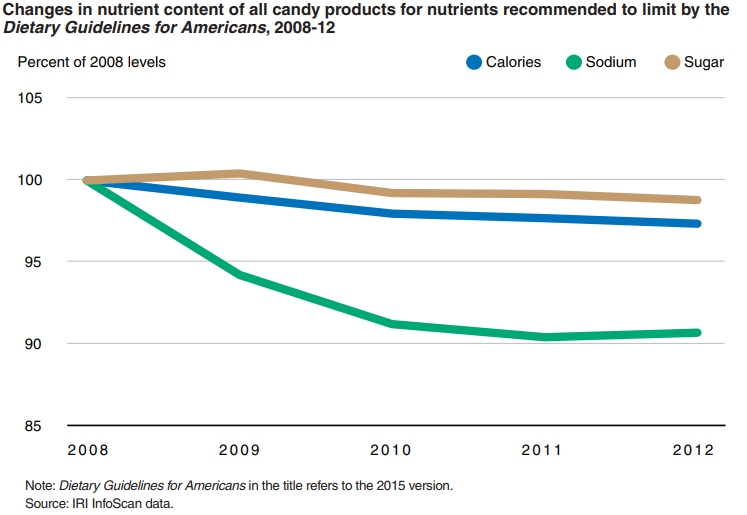
To access the full report:
https://www.ers.usda.gov/webdocs/publications/85761/eib-183_summary.pdf?v=43055


